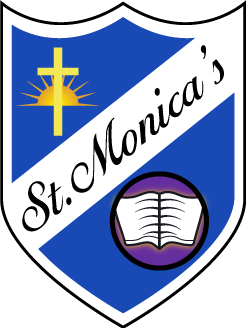History
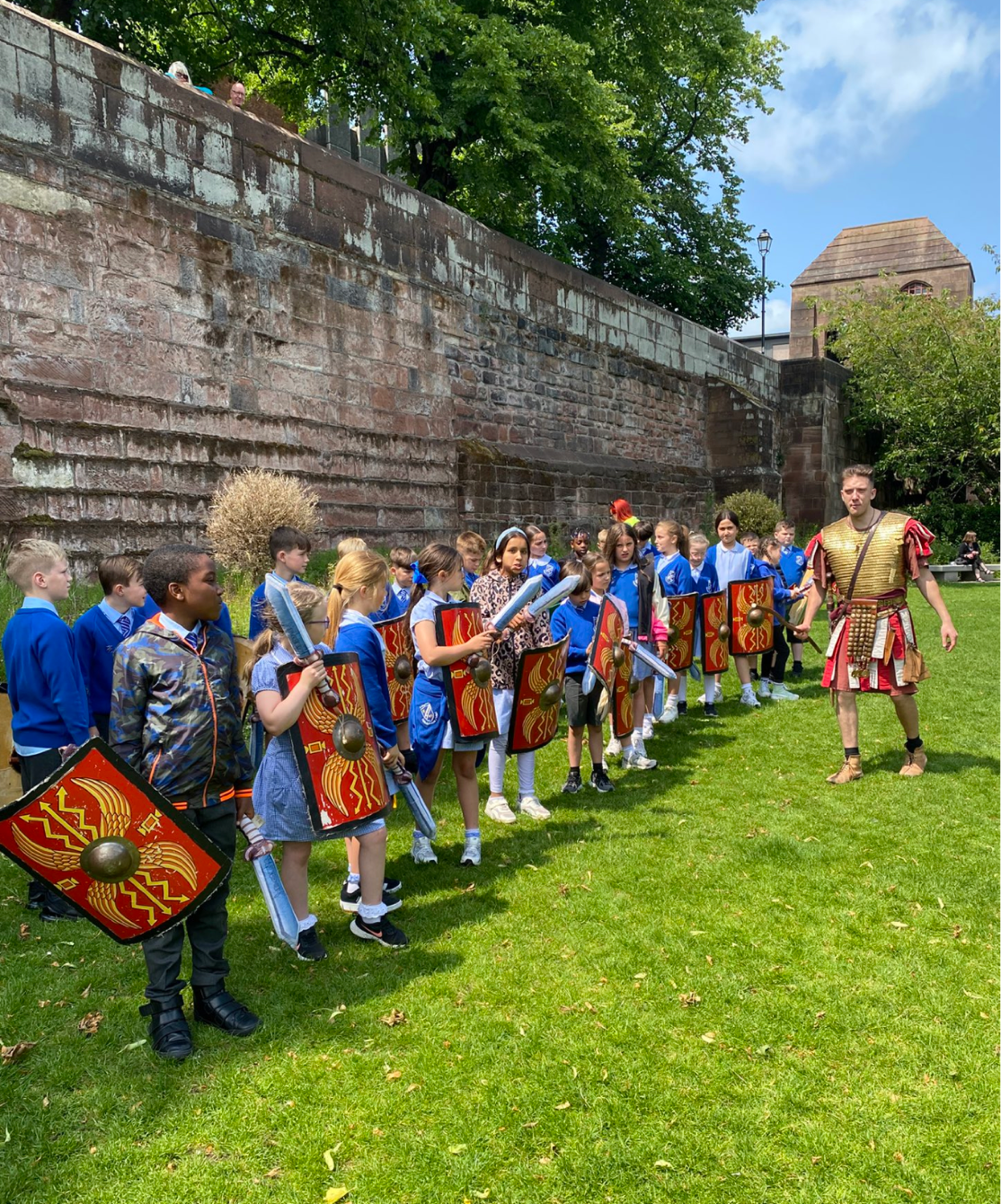
History Vision
Our school motto is ‘Success for all within a Christ Centered Community is at the heart of all we do. At St Monica’s we strongly believe in providing children with inspiring, creative and meaningful learning experiences that builds on their natural curiosity and ignites their passion for learning. We want all learners to value: Curiosity; Diversity and to become 'Lifelong Learners'.
Curious Minds: Our pupils will learn about their own history before developing chronological knowledge of British history and world history. To explore historical sources with a curious mind and have chances to make their own links and develop their skills as a historian.
Diversity is our Superpower: We learn about history through a diverse lens and understand how things have changed over time for all communities. Understand how big events have had an impact on the lives of people in the past and how this impact on today.
Lifelong Learners We want our children to be passionate and interested when learning in History lessons. We aim to teach in the way facts are valued, remembered and assessed. We also evaluate and discuss historical sources and want to build children’s historical knowledge throughout their time at St Monica's.
Children need a curriculum that is research-based and supports the pedagogy of how children learn. Our History curriculum aims to develop children’s historical knowledge in a chronological and meaningful way. Not only will it develop their knowledge of their own, local, British and global history, we want them to develop the skills to work like a historian and understand and connect global events in history. We deliver a diverse History curriculum that allows them to make meaningful links and ask questions.
Our History Curriculum

Children in Early Years are given opportunities to make sense of their own History and past experiences through exploring, observing and finding out about people, places and their environment. Children in Nursery and Reception will also develop early historical skills through exploring changes, seasons, celebrations and growing things over time.
For example, in EYFS, pupils may learn about the past and present through daily activities, exploring through change, and understand more about the lives of others through books and visitors as well as their own experiences. These experiences are drawn upon and used to position new learning in KS1and KS2.
The structure is built around the principles of advancing cumulative knowledge, chronology, change through cause and consequence, as well as making connections within and throughout periods of time studied.
CUSP History is planned so that the retention of knowledge is much more than just ‘at the moment knowledge’. The cumulative nature of the curriculum is made memorable by the implementation of Bjork’s desirable difficulties, including retrieval and spaced retrieval practice, word building and deliberate practice tasks. This powerful interrelationship between structure and research-led practice is designed to increase substantive knowledge and accelerate learning within and between study modules. That means the foundational knowledge of the curriculum is positioned to ease the load on the working memory: new content is connected to prior learning. The effect of this cumulative model supports opportunities for children to associate and connect with significant periods of time, people, places and events. CUSP History strategically incorporates a range of modules that revisit, elaborate and sophisticate key concepts, events, people and places.
A guiding principle of CUSP History is that pupils become ‘an expert’ with each unit of study and develop an ever broadening and coherent timeline and understanding of key events. This guards against superficial, disconnected and fragmented understanding of the past. Specific and associated historical vocabulary is planned sequentially and cumulatively from Y1 to Y6.
Vocabulary
High frequency, multiple meaning words (Tier 2) are taught alongside and help make sense of subject-specific words (Tier 3). Each learning module in history has a vocabulary module with teacher guidance, tasks and resources.
As well as developing the children's historical knowledge and vocabulary, we aim to give children the opportunity to 'think like a Historian'. This covers understanding of chronology, cause and consequence, change and continuity, similarities and differences, evidence and significance.
History Substantive and Disciplinary Knowledge
Substantive Knowledge in St Monica's
Substantive Knowledge is the content of history, the facts of people, places, events and the vocabulary used to describe them. In CUSP History, pupils build a secure and connected knowledge base so they can understand ideas such as community, knowledge, power, invasions, civilisation and democracy. Misconceptions are clearly addressed and corrected as children deepen their understanding.
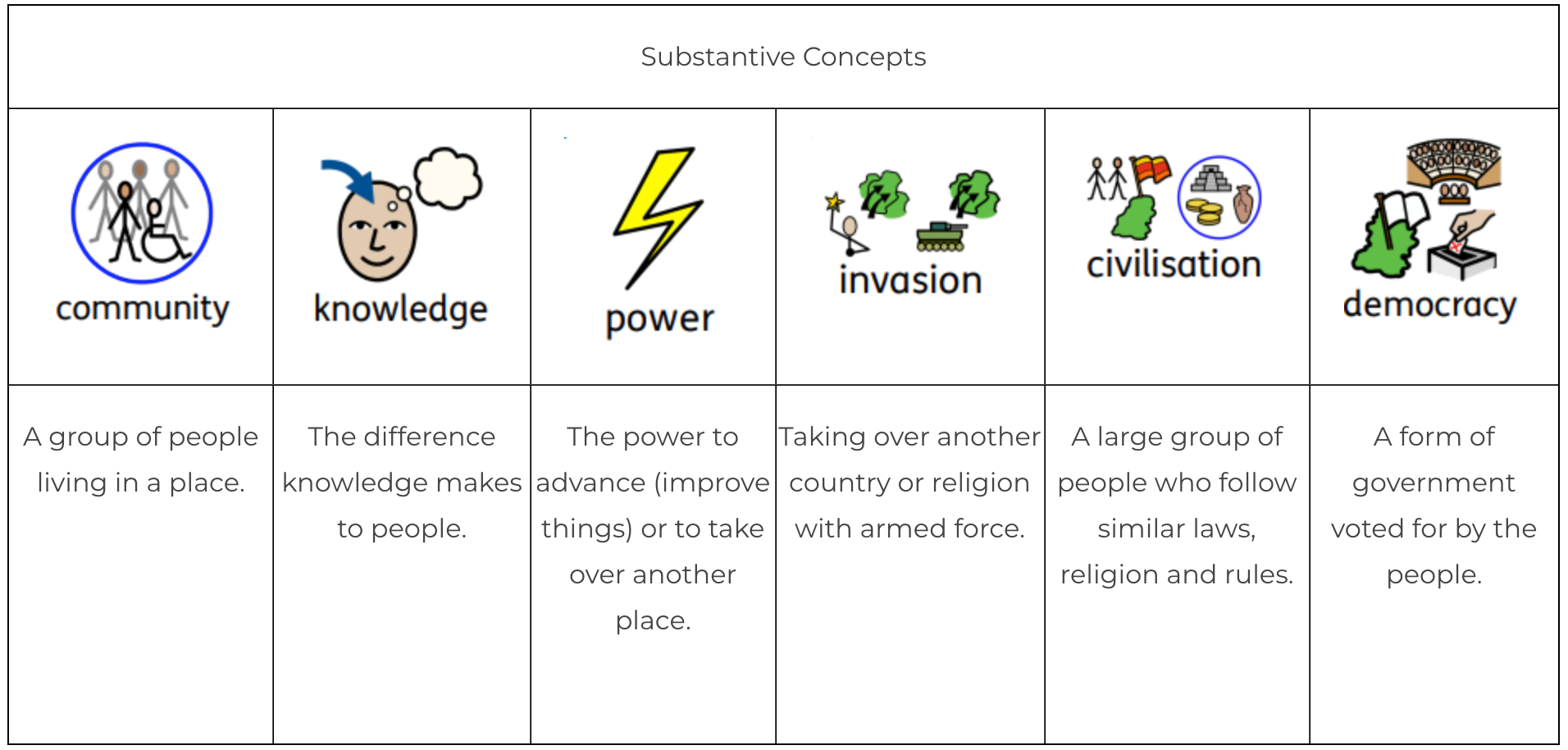
Disciplinary Knowledge in St Monica's
This is knowing how historians work. Children learn how to gather information, ask questions, examine evidence, compare sources, make judgements, and explain their ideas. These skills are taught explicitly and practised often. We call this “Working Historically.”
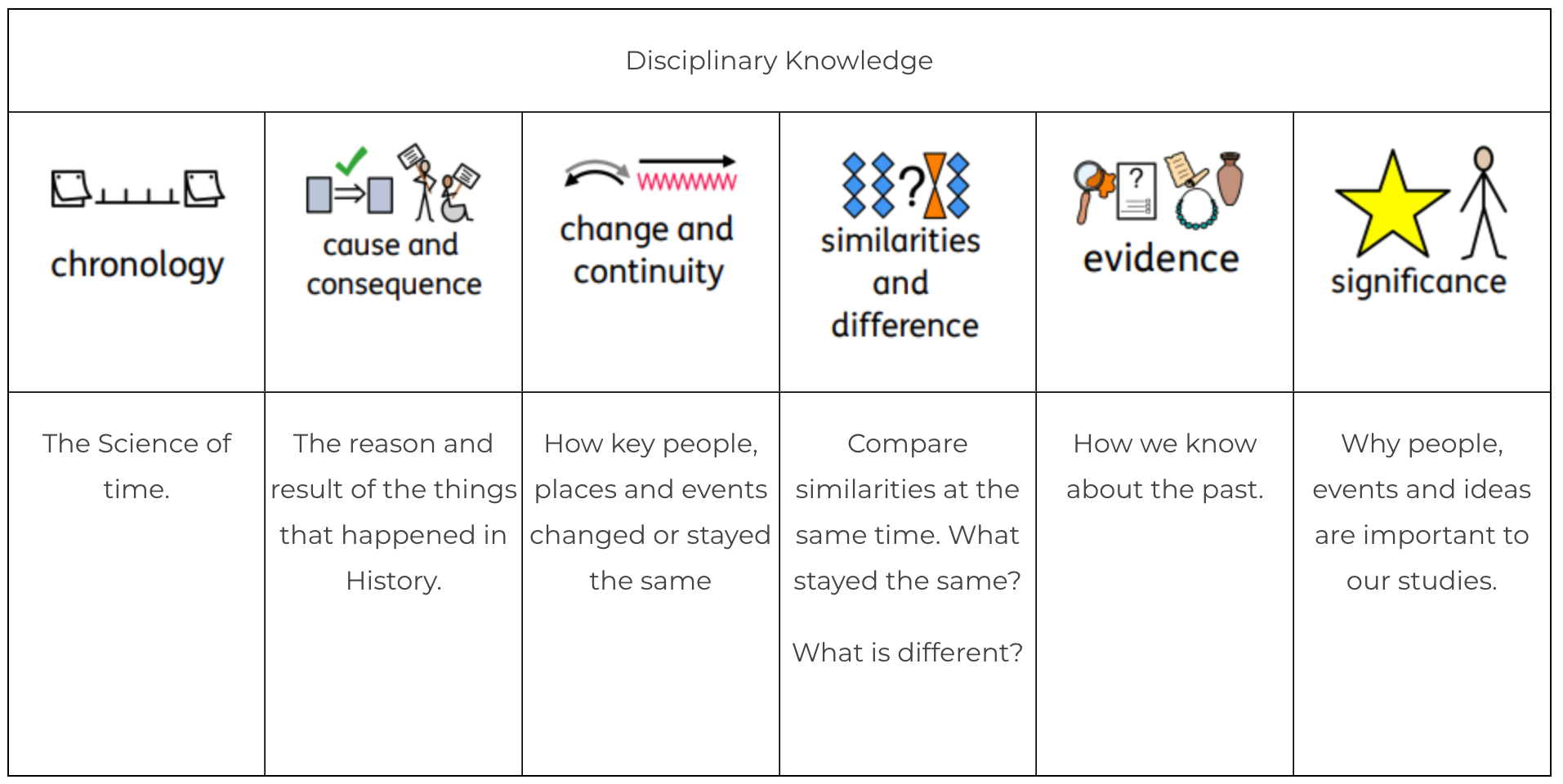
Intent
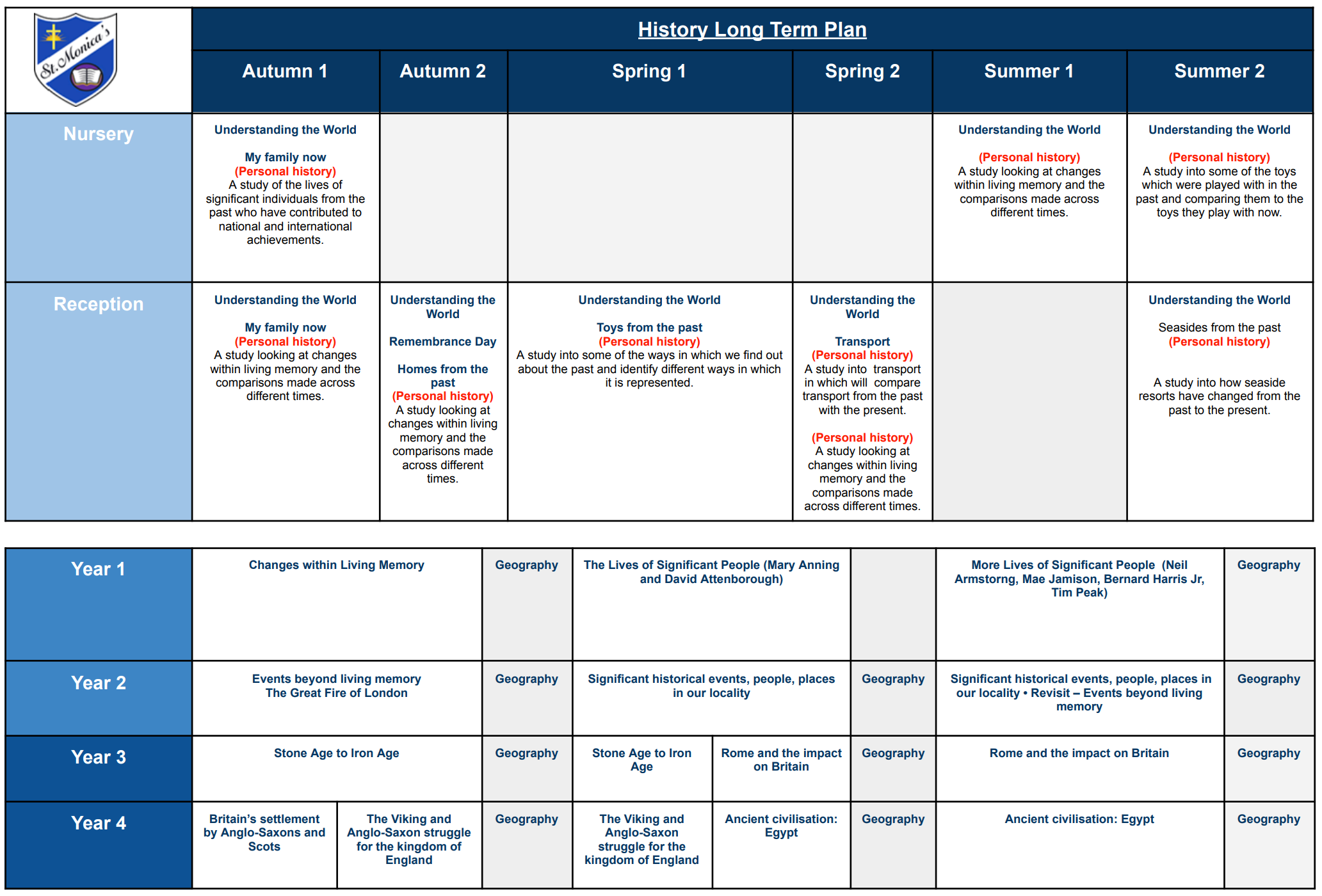

Implementation
The history curriculum at St. Monica’s helps pupils to make sense of the present as well as the past. The children are equipped with historical skills and knowledge which enable them to make progress throughout the history curriculum. Children have the ability to think critically about history and communicate ideas confidently. They evaluate and challenge their own and others’ views using a range of sources to support their learning.
Impact
Progress through the history curriculum is measured through a mixture of formative and summative assessment, regular book moderation, celebration events and discussion and review of work with children. Feedback is continually given to children which leads to better outcomes. At the end of each topic the children will debate an issue, evaluate a statement/question or complete an end of topic quiz. This enables us to determine if children have a secure understanding of historical concepts taught as they move forward to their next stage of education. The core assumptions of knowledge that is powerful is that it can be applied, is flexible and is conceptual (Young, 2016).
In History, our pupils complete an end-of-unit assessment, so we can identify gaps in their learning and ensure that these gaps are revisited, both in the same year and in future years.
